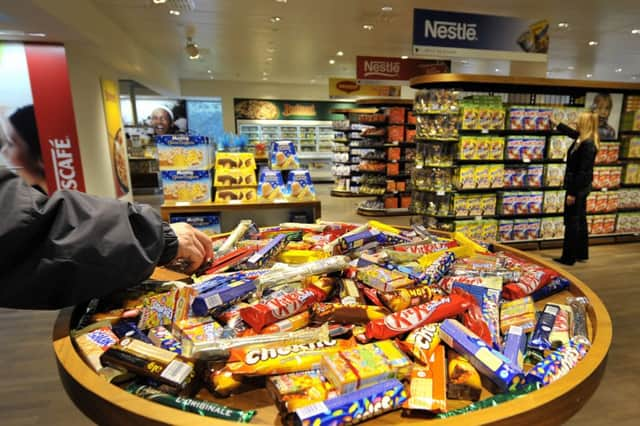Sharing ideas is key to food innovation


At THE Scottish Food and Drink Federation (SFDF), the voice of the food and drink manufacturing sector, we believe that innovation is key to ensuring our sector continues to flourish. Throughout its history, the food industry has embraced innovative new ideas and approaches which have transformed consumers’ lives. For example, the average time taken to prepare a meal is 18 minutes today, down from two hours 50 years ago.
The UK’s 7,700 food and drink producers currently bring more than 8,000 new products to the market every year, investing £1 billion a year in innovation. This increases the availability of high-quality, safe and nutritious food at affordable prices, with plenty of choice to suit individual tastes and diets. The challenges that we face as a sector are many; we must continue to reduce our environmental impact, produce more for a growing population from less as pressure increases on resources, reformulate and create new products to meet diet and health requirements, and deliver our sector’s vision of 20 per cent growth by 2020.
Advertisement
Hide AdAdvertisement
Hide AdTo meet these objectives, the sector recognises the scale of change that is needed, not only to the ingredients we use and the products we make, but also to how we package and transport them to customers.
Manufacturers rely on a wide range of raw materials and ingredients throughout the whole supply chain for which companies cannot always afford the risk of funding research to drive improvements by themselves. This results in a pre-competitive gap between primary agriculture and new product development in companies.
If companies could collaborate on pre-competitive research projects to tackle shared challenges, the benefits would be far-reaching.
That is why the Food and Drink Federation has worked with the Knowledge Transfer Network, the UK’s innovation network, to identify the top ten priority areas for pre-competitive innovation. In Scotland, we are working in partnership with Scotland Food and Drink, Interface, Scottish Enterprise, academia and companies to develop and champion a clear view of where and how limited resources should be used to tackle the priority challenges.
Businesses in our sector have long known the strategic value of innovation in driving business growth and increasing profitability. Supported by Interface, a central hub connecting businesses with academia and research institutes in Scotland, Scottish-based seed potato company Agrico UK began a research project with the University of Abertay in Dundee to better understand the eating habits of consumers. Using a technique known as free choice profiling, the project aims to identify what qualities and features a consumer might look for in describing the eating quality and enjoyment of one potato variety versus another. By better understanding what factors influence consumer purchasing habits, Agrico UK will be better able to develop new varieties that suit customers in a particular market.
In another example, Nestlé UK & Ireland has found innovative ways to improve resource efficiency. Nestlé Girvan on the west coast of Scotland has halved water consumption through initiatives such as reverse osmosis on milk condensate. It recycles water extracted from the milk used to make chocolate each day and by end of this year it will have reduced water usage by 84 per cent. In Newcastle, an onsite new generation anaerobic digestion facility has been built that uses both liquid and solid waste from products such as Fruit Pastilles, Rolo and Blue Riband to partly power the factory. The facility produces gas which, in turn, provides energy for the factory, leading to significant reductions in energy bills.
The company is also developing a £200 million freeze-dried coffee plant in Derbyshire that will use 60 per cent less energy and water than the plant it is replacing.
The Industry Advisory Group on Resource Efficiency, set up by SFDF, Resource Efficient Scotland and Interface, offers an example of how effective collaborations between public and private sector deliver innovation with huge impact. So too does SFDF’s Scottish Government health-funded Reformulation Programme which has provided support to small and medium-sized producers to reformulate products for health.
Advertisement
Hide AdAdvertisement
Hide AdForums for collaboration and ground-breaking initiatives such as the recently-launched Centre of Excellence in Food Engineering at Sheffield Hallam University are vitally important. The ambition for the centre is to provide world-class engineering facilities, acting as a hub for engineering and related innovation and engineering skills solutions in order to improve productivity and competitiveness in the sector. Currently the centre is working on new ways to further harness the steam and heat produced during manufacturing, as well as new methods to get the most out of raw materials and minimise waste. This research will drive down costs so that smaller businesses can buy innovative off-the-shelf solutions to help them use resources more efficiently.
By taking a more collaborative approach to innovation, the food industry and its partners can overcome shared challenges and deliver additional benefits for our businesses, customers and community.
• Dr Colette Backwell is director of the Scottish Food and Drink Federation (SFDF)
SEE ALSO